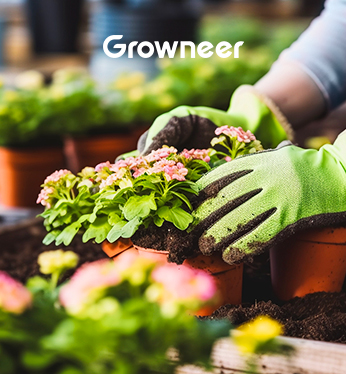How to Grow Petunia Using a Hydroponic System for Beginners

Basic Data
- ☀ Ideal Temperature: Petunia thrives best in temperatures between 60°F to 75°F.
- 🌱 Germination Time: Usually takes 7 to 14 days to germinate.
- 📅 Time to Maturity: Begins to flower in about 70 to 90 days.
Germination Steps
- Step 1: Soak the planting sponge and gently squeeze out excess moisture.
- Step 2: Place petunia seeds into the damp sponge.
- Step 3: Keep in a warm, light-filled environment until germination occurs.
- Step 4: Transfer the sponge with the sprouted seeds to the vertical hydroponic system.
Growing Process
Light Requirements Table
| Stage | Light Duration | Light Spectrum | Light Intensity |
| Germination | 14-16 hours/day | Blue (450 nm), more Red (660 nm) | 150-200 µmol/m²/s |
| Seedling | 16-18 hours/day | Full spectrum | 200-300 µmol/m²/s |
| Vegetative | 16-18 hours/day | Full spectrum | 300-400 µmol/m²/s |
| Mature | 16-18 hours/day | Full spectrum, more Red | 300-400 µmol/m²/s |
- 💧 Water Pump Volume and Duration: Set to cycle every 15 minutes.
- 🔧 pH Value: 5.8 to 6.5.
- 🍼 Nutrient Ratio:
- Nitrogen: 150 parts per million
- Phosphorus: 100 parts per million
- Potassium: 200 parts per million
- Calcium: 175 parts per million
- Magnesium: 50 parts per million
- Trace Elements: Include Iron, Manganese, Zinc at 2 parts per million each as needed.
Plant Benefits
- Vibrant Colors: Petunias are known for their wide range of bright and vibrant colors.
- Continuous Blooming: Can bloom continuously throughout the growing season.
- Attracts Pollinators: Can attract beneficial insects such as bees and butterflies.
Conclusion
Petunias are a wonderful addition to any hydroponic garden, especially for those looking to add a burst of color. While they require a bit more attention, especially in managing pH and nutrients, they reward gardeners with stunning blooms and a lively garden atmosphere. Their care is a great way to deepen your understanding of hydroponic systems and enjoy the flourishing results.

